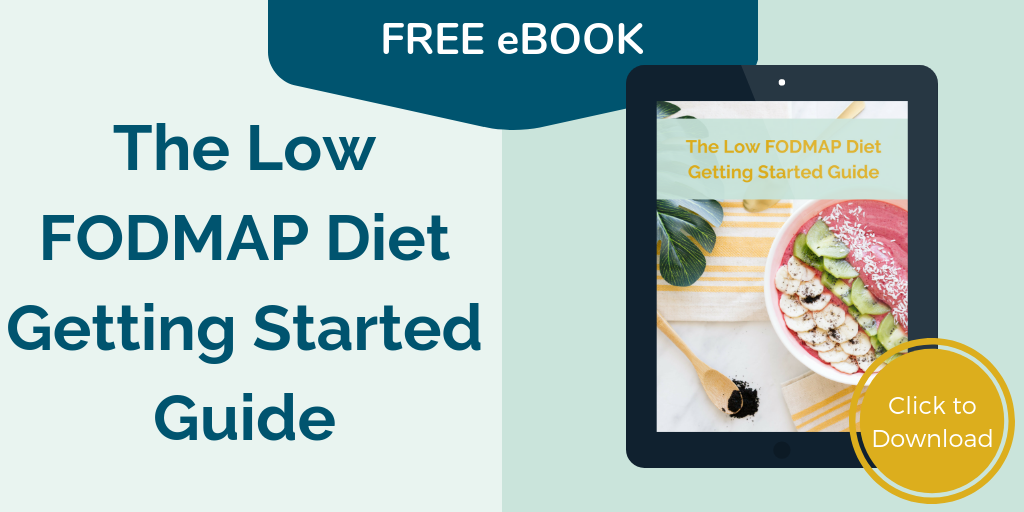Low FODMAP Diet & Digestive Health News
With the public’s growing concern for eating healthy and more awareness about Irritable Bowel Syndrome (IBS), we are seeing a greater focus on digestive health. Amidst the publishing of new research and the release of new products targeted at improving digestive health, it can be difficult to keep up-to-date. Here are this week’s highlights.
MONASH UNIVERSITY UPDATES
Monash University is regularly adding new food items to the app and certifying newly released Low FODMAP products. With constant changes it can be difficult to keep up, but our team is working hard to highlight the latest updates to the app as they happen so you can continue eating well for your health and your gut, without all the confusion and guesswork.
If you are following the Low FODMAP diet and haven’t already downloaded the app, we recommend you do. This is the best tool to provide you with an up-to-date list of low, moderate, and high FODMAP foods. New foods are regularly added in addition to updates for existing items based on the latest testing and research.
The first step if you’re looking to improve irritable bowel syndrome (IBS) or another digestive disorder or disease, is to understand more about the Low FODMAP diet and if it can help. Download my free eBook to help you better understand this diet and get started implementing simple steps to get rid of symptoms like gas, bloating, pain, diarrhea or constipation related to IBS. Click here to get a copy emailed to you right away.
Confused About Which Foods are Low FODMAP?
Have you ever consulted an online or print list of foods to include and foods to avoid on the Low FODMAP diet, only to find that a certain food is listed as high FODMAP according to one source, but low FODMAP according to another? The best way to confidently determine FODMAP content is through laboratory analysis, such as the testing that is being done through Monash University. Monash is constantly updating their app, so it really is the best, most accurate, and up-to-date source if you’re looking for information on FODMAP content of foods. As a result of constant testing and updating, many websites have outdated lists with conflicting information. It’s also interesting to note that FODMAP content of foods can vary based on growing conditions such as climate and soil. So in theory, it’s possible that a tomato grown in Canada might have different FODMAP content than a tomato grown and tested in Australia. Variations in FODMAP content can also be influenced by plant variety and storage of plants (i.e. temperature and length of storage). Furthermore, even what part of the plant you sample can influence FODMAP content. For instance, the white part of spring onions contains fructans, but you can cook with the green part of the onion, which is considered low in FODMAPs.
Food Processing and FODMAPs
Food processing can have a significant impact on FODMAP content. We discuss how canning and pickling foods can affect FODMAP content in a previous news release: Canned and Fermented Foods & FODMAPs. For example, boiling, straining and canning can affect water-soluble FODMAPs such as fructans and galacto-oligosaccharides. Fermented foods such as yogurt, pickles, and pickled red cabbage have reduced FODMAP content because the bacteria involved in these processes feed on the FODMAPs, thus reducing their levels. The longer the fermentation process occurs, the lower the FODMAP content. This effect is especially noticeable in spelt products. When products made with spelt are not fermented, they test high for FODMAPs, while sourdough spelt bread (which involves the fermentation process) is low in FODMAPs. It’s important to remember that the effects of food processing on FODMAPs is not always predictable. One exception is sauerkraut made with white cabbage, which is considered high in FODMAPs regardless of it being a fermented food product.
FODMAPs in Soy Products
Figuring out whether a soy product is considered low in FODMAPs is confusing. Soy is a prime example of how food processing can influence FODMAP content. Soy milk made from soy protein for example, is lower in FODMAPs than soy milk made from soy beans. This is because whole soy beans are high in galacto-oligosaccharides. Due to the way they are processed, you may enjoy low FODMAP options such as tempeh, soy sauce, firm tofu, and miso paste. Tempeh, soy sauce, and miso paste are fermented foods, which decreases the FODMAP content, while firm tofu is pressed into a block which decreases the water content and the water-soluble FODMAPs.
MEDIA UPDATES
Improving the Gut Microbiome
A recent study conducted by Dr. Fernando Azpiroz and colleagues suggests that taking a probiotic may help with improving diversity of gut bacteria. The unpublished study looked at 26 healthy individuals and asked them to take a probiotic while consuming their usual diet. Researchers evaluated the amount of gas produced, as well as diversity in their microbiome. They found that after a 3-week period individuals had increased the diversity of the bacteria in their gut without causing any abdominal discomfort.

Causes of Bloating
An article in the online magazine, The Conversation, tackles the issue of bloating, what causes it, and ways to decrease it. Bloating occurs when parts of our digestive system are distended or stretched. Some studies looking into what happens within the body when we feel bloated have shown that there may be a “pooling of liquid, gas, or solid food content”. Some people who have sensitive gastrointestinal nervous system (i.e. those with IBS) will feel this distension as bloating. Many people believe that bloating is solely due to excess gas, but this is not entirely the reason why we experience bloating. Bloating is also associated with contents moving too slowly through the bowels (ie. constipation), as well as having weak abdominal muscles. The article mentions the Low FODMAP diet and probiotics as strategies to reduce bloating.
RESEARCH UPDATES
IBS in Children
An Italian study that looked at 83 children with IBS found that in 48 cases, the children’s symptoms resolved themselves during the two-year study period. These results occurred regardless of symptom severity and treatment provided. This may be a relief to some parents who are worried about the long-term impact of IBS on their child’s well-being and mental health.
Endometriosis and IBS
Endometriosis News recently wrote a piece about how a condition known as endometriosis can affect digestive health. Endometriosis is a condition of the female reproductive organs including the uterus and ovaries. It occurs when the endometrium, the lining of the uterus, starts to grow in other parts of the body, causing severe pain and infertility. Sometimes the endometrium can penetrate the walls of the bowels which can lead to symptoms similar to IBS. Regardless of how long you have been suffering with symptoms of digestive distress, it’s so important to seek medical attention and get a diagnosis, since there are many serious conditions that share similar symptoms but require different treatments.
Post Traumatic Stress Disorder and IBS
Everyone has experienced fear following a distressing event or situation. It may result in short-term change in our sleeping patterns or how we interact with loved ones. In the case of Post Traumatic Stress Disorder (PTSD), a stressful event can have a long lasting impact on many aspects of a person’s life. PTSD is considered a mental illness which is triggered by a traumatic event such as a death, natural disaster, or act of violence. People may experience flashbacks, nightmares, invasive thoughts, and mood swings. We know that there is a link between the mind and the gut, and current research is looking into whether there might be a connection between PTSD and IBS.
Neuropeptide Y and PTSD
During stressful events our bodies release hormones that play a role in regulating our stress response. These hormones can change our heart rate, alter senses, and decrease rate of digestion. This is commonly known as the ‘fight-or-flight’ response, which is our body’s way of prioritizing certain functions so we can either protect ourselves from a threat or flee. One hormone in particular, neuropeptide Y, is associated with our resilience to stress.
Neuropeptide Y has a multitude of roles in the body. It influences the function of our gut, pancreas, and heart. It is believed that low neuropeptide Y levels can be caused by prolonged exposure to stress. Research suggests that individuals with lower levels of this hormone are more likely to develop PTSD.
IBS and PTSD
Since neuropeptide Y affects the gut, it makes sense that it could play a role in IBS. Neuropeptide Y plays a role in transporting fluid into the gut, as well as muscle activity of the bowel. Research is starting to show that low levels of this hormone are associated with IBS, specifically IBS-D.
Although this research is still in its infancy, understanding the link between PTSD and IBS may help guide future research. It is our hope that increased awareness of this possible link between PTSD and IBS may encourage people to seek help for digestive issues which may aid in their recovery from PTSD.
Written by Adi Hazlewood, News and Culture Editor
References
- Rasmusson A. Current opinion in endocrinology diabetes and obesity. 2017. The gut peptide neuropeptide Y and post-traumatic stress disorder.
- Canadian Mental Health Association. 2016. Post-traumatic stress disorder. http://www.cmha.ca/mental_health/post-traumatic-stress-disorder/#.WJvOE7YrK1s
- Monash University. 2017. Food Processing and FODMAPs. http://fodmapmonash.blogspot.ca/2017/02/food-processing-and-fodmaps-what-you.html
- Stapleton FB. New England Journal of Medicine Journal Watch. 2017. http://www.jwatch.org/na43377/2017/01/30/does-irritable-bowel-syndrome-children-resolve
- https://endometriosisnews.com/endometriosis-in-the-bowel/
- https://medicalresearch.com/author-interviews/investigational-compound-improves-gut-microbiome-without-long-term-gi-symptoms/31680/
- https://theconversation.com/health-check-what-causes-bloating-69616


